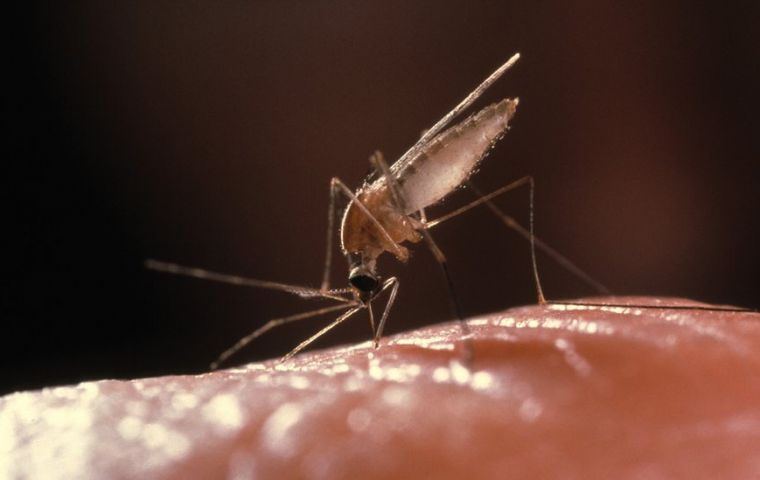MercoPress. South Atlantic News Agency
Paraguayan health experts warn of risk of malaria
 In 2018, Paraguay was certified by the World Health Organization (WHO), as a country free of autochthonous transmission of malaria
In 2018, Paraguay was certified by the World Health Organization (WHO), as a country free of autochthonous transmission of malaria Paraguay's Health Ministry has advised that anyone returning from a country with malaria transmission and who presents fever, chills, headache, or any other discomfort should consult a physician. The disease is potentially fatal if not diagnosed and treated in time.
Malaria is caused by parasites of the genus Plasmodium and transmitted to humans by the bite of infected mosquitoes (Anopheles).
In 2018, Paraguay was certified by the World Health Organization (WHO), as a country free of autochthonous transmission of malaria. The last autochthonous case was recorded in 2011. World Malaria Day will be commemorated on April 25.
Worldwide, 39 countries and territories reached this milestone. The United Arab Emirates (2007), Morocco (2010), Paraguay (2018), Argentina (2019), and El Salvador (2021), among others, were certified as malaria-free.
The National Vectorial Diseases Program of the Health Surveillance Directorate recalled the commitment to remain vigilant. Any imported case of the disease should be promptly identified and treated. The authorities have also announced that travelers entering the country from areas with malaria transmission will be contacted by telephone to follow up on possible symptoms and refer them for diagnostic sampling.
The most common symptoms of malaria are fever of 38 ºC or higher (often intermittent), chills (sweating and shivering), headache, vomiting, and muscle and joint pains. Any person returning from a country with malaria transmission and presenting any of the above symptoms should immediately go to the health service, mentioning the history of his or her trip, the Paraguayan authorities insisted, while surveillance is currently intensified in at-risk populations, namely those in international bordering areas and also among international travelers coming from countries with active malaria transmission.
(Source: ABC Color)



Top Comments
Disclaimer & comment rulesCommenting for this story is now closed.
If you have a Facebook account, become a fan and comment on our Facebook Page!